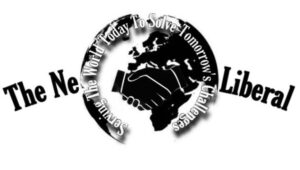Introduction
Period poverty is defined as “inadequate access to menstrual hygiene tools and education, including but not limited to sanitary products, washing facilities and waste management. While the term period poverty is relatively new in medical literature, menstrual hygiene management has been discussed for decades in the context of the gender gap in education for youth living in low- and middle-income countries,” (CHOP Policy Lab) such as those in the global south (the Caribbean or formerly third world countries) and vulnerable peoples such as black and brown peoples living in post-industrial cities and places in the world. The problem of period poverty is not just a Caribbean Problem, but it is international experienced mostly by those who are black, or brown where they live in poverty and lacking resources. Period Poverty affect educational outcomes and opportunities for advancement especially among our girls. Because period poverty affects mostly girls biologically, the drive to end period poverty has been slow. That’s according to Executive Director of Her Flow Foundation who is working to end Period Poverty in her country, Jamaica, who we interview some time ago on the Neoliberal Round.
The Interview With Shelly-Ann Weeks in Audio via the Spotify Platform
A GLOBAL PERSPECTIVE ON PERIOD POVERTY
According to a 2014 United Nations Educational, Scientific and Cultural Organization (UNESCO) report, 1 out of every 10 menstruating youth misses’ school during their menstrual cycle due to lack of access to menstrual products and resources. For example, menstruators in developing parts of the world, such as sub-Saharan Africa, are prone to using paper, old clothes, leaves, cotton, or wool pieces rather than more traditional menstrual products like disposable pads or tampons. Many schools in developing nations have insufficient toilets and inadequate privacy measures, as well as poor water, sanitation and hygiene infrastructure, making it difficult for students to safely manage their menstrual cycle.
WHAT DO WE KNOW ABOUT PERIOD POVERTY IN THE Caribbean/Jamaica?
You cannot afford to miss a minute of this episode where I interviewed Shelly-Ann Weeks Executive Director of the HerFlow Foundation in Jamaica, and recent recipient of the Governor General’s Award. The Governor General is Jamaica’s appointed Head-of-state and representative of the Queen of England who is the actual head-of-state of Jamaica. It was dynamic, informative, inspiring, animated and have you drawn into the story of her life, work and the impact she is making. Ms. Weeks had me on the edge of my seat and was dropping knowledge; it was an erudite analysis albeit for just over one hour. This Interview was very important to the solutions towards ending poverty and the UN 2030 SDG goal of building the human capital especially among vulnerable peoples and places as a way of eliminating poverty and improving equity in societies and the world.
The Interview with Shelly-Ann Weeks in Video via the Spotify
HerFlow exists to empower women and girls about reproductive health through education and mentorship. Their flagship project is to end Period Poverty (the inability to afford menstrual products when needed) in Jamaica. They focus most of their work in schools ensuring that girls don’t miss classes because of period poverty. So far, they have donated nearly 5, 000, 000 period products. Help them continue their drive by making a DONATION, because together we can permanently do something about not just period poverty (because she shouldn’t have to choose between her period and her education) but eliminating the stigmas surrounding women’s reproductive and sexual health.
Did you know that 44 percent of girls in Jamaica are affected by period poverty and of this figure 24 percent drop out due to Period poverty? Period poverty isn’t just a female issue but should also be a man’s issue. New Zealand and Netherlands have made ending period poverty a priority by providing resources to girls free-of-cost, but what about countries like Jamaica, what has been the policy and national drive to deal with the challenge that Period poverty poses, such as productivity, dropouts, gender inequality, stigma around women’s health and the health-related issues that may stem from doing nothing? You will be surprised to know that many of the schools in Jamaica and poorer countries are church sponsored and as such, their theology prevents effective response to the issue and challenges surrounding sexual and reproductive health and the diluted or non-existent national policy in these countries on ending period poverty and women’s and or reproductive and sexual health which also affects the building of the human capital. We discuss these, including her secret to losing nearly 100 pounds, resolving major health-related issues and her fearlessness in the daunting task with little help and a culture that discriminates against women’s health, and the religious that assumes the negative side of femininity and masculinity. It was deep and Herflow’s story is worth listening, reading and or watching.
The interview is available in audio and video on all our podcasts feeds and channels.
We will also have the full transcripts later this week in The Neoliberal Journals and The Neoliberal Post and commentaries on The Neoliberal Corporation’s websites at https://theneoliberal.com and https://renaldocmckenzie.com. The Neoliberal Corporation is serving the world today to solve tomorrow’s challenges. We’re about making popular what was the monopoly which is the aim of communication. You may subscribe to the show for free while it is available at no cost https://anchor.fm/
“Communication is to make popular what was the monopoly”
—
Send in a voice message: https://anchor.fm/
Support this podcast: https://anchor.fm/

We are proud to partner with Belkins, suppliers of digital and communication solutions and technology that promotes equity and diversity. They are helping to make tech devices and communication tools available to continue to advance the world. Check out tjheir new promotions:
Buy one dock or cable and get one 30% off with code: B1G1DC30
Renaldo McKenzie is a Lecturer at The Jamaica Theological Seminary, author of Neoliberalism, Globalization, Income Inequality, Poverty and Resistance and will release a new book next month: Neoliberal Globalization Reconsidered. Renaldo is a Doctoral Candidate at Georgetown University and is hoping to transfer to University of Penn Annenberg School of Communication to continue his doctoral studies but in Communication. Renaldo is President and Editor-In-Chief at the Neoliberal Corporation, Serving the world today to solve tomorrow’s challenges, through communication: making popular, what was or is the monopoly!

Error: Contact form not found.

